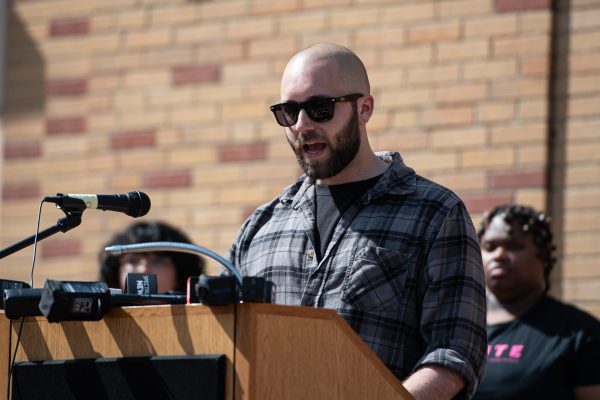Breast cancer doesn’t only affect women
October 19, 2006
When most people think of breast cancer, they probably think of women, pink shirts and Race for the Cure. They may not realize, however, that although it is rare, men are also susceptible to breast cancer.
According to the American Cancer Society Web site, an estimated 212,930 people were diagnosed with breast cancer in 2005. Men accounted for 1,690 of those cases. Out of an estimated 40,870 breast cancer deaths last year, 460 were men.
In spite of the rarity of breast cancer in males, they should be aware that it is a possibility, said Judy Mink, director of radiology at Robinson Memorial Hospital.
“They should be doing breast exams like women, but that’s probably not going to happen,” Mink said.
Ray Leone, chief university physician of University Health Services, said men need to know their bodies and get checked out if anything seems out of the ordinary.
“If you notice lumps or bumps anywhere, they should be observed,” he said. “Know what’s normal for you.”
Older men, those with a history of breast cancer in their family and those who have a high estrogen level can be at a higher risk for the cancer, Mink said.
“If there’s a significant history of breast cancer, they need to keep an eye out,” Leone said.
Mink said breast cancer tends to be more advanced when it is diagnosed in men because men do not report it as soon as they should.
“They just need to be aware it’s a possibility and notify their health care provider immediately if they notice a lump,” she said. “If they don’t report it, then their chances of getting treated successfully are going to be less.”
Breast cancer in men and women is similar.
“The symptoms are essentially the same,” Leone said. “If it’s breast cancer, it’s breast cancer.”
However, breast cancer typically occurs around the nipple in men, and may be easier to find in men because they have less breast tissue, he said. Similarly, a lump may be harder to find in a man who has a lot of fatty tissue.
Treatment is also the same for men and women; however, in men there is “not as much plastic surgery and repair,” Leone said.
As is the case with most illnesses, early detection is the best bet for successful treatment.
Taking care of one’s overall health is also helpful in avoiding cancer, Leone said. “Keep your immune system in tip-top shape,” he said. “Everyone should keep an eye on their general health.”
Contact health and medical reporter Allison Bray at [email protected].























